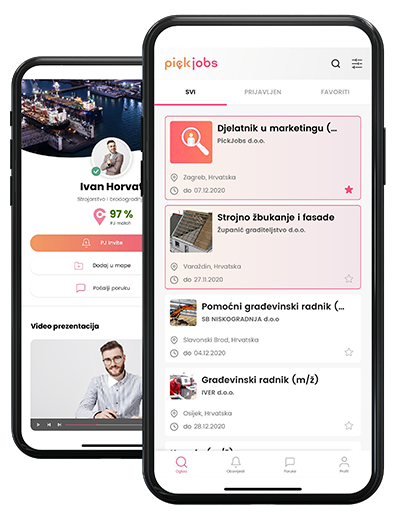A proportionate part of annual leave is earned by an employee who does not have six months of continuous employment in the calendar year in which he was first employed, or in which he was employed after a break in employment of more than eight days.
What if the worker does not have the right to a full vacation?
When a worker does not have the right to a full vacation, i.e. he has not met all the conditions, he has the right to a proportional part of the vacation.
When does a worker have the right to annual leave?
- When he has not met the condition for acquiring the right to a full annual vacation (he is employed for the first time or has a break between two employment relationships for longer
of 8 days).
– When his employment relationship ends because the worker is entitled to a proportionate part of the annual leave for the calendar year in which it ends
employment relationship.
How is the proportionate part of annual leave calculated?
An employee is entitled to one twelfth (1/12) of annual leave for each month of work.
What happens when the employee's employment ends, and the employee is not able to use the rest of the annual leave?
The employer has the obligation to enable the employee whose employment relationship ends to use a proportionate part of the annual leave or to pay compensation for the unused part of the annual leave. At the same time, the employer is obliged to pay the employee compensation for the unused part of the annual leave if, due to objective reasons, the employee is not allowed to use the annual leave until the moment of termination of the employment relationship. The compensation is determined in proportion to the number of unused vacation days.
Can annual leave be used in parts?
When an employee uses annual vacation in parts, he must use at least two weeks of continuous vacation during the calendar year for which he is entitled to annual vacation, unless the employee and employer agree otherwise. The employer and the employee can agree that the employee will use less than two weeks of annual vacation in a continuous period during the calendar year. In this case, the unused part of the vacation will be carried over to the next calendar year.
Can the employer and employee agree that the employee does not use a single day of vacation for the current calendar year?
The employer and the employee cannot agree that the employee does not use a single annual day during the calendar year. That is, the entire vacation cannot be carried over to the next calendar year, as this would be contrary to the provisions of the Labor Law. In that case, it would be good for the worker to use one day of annual leave during the calendar year for which he is entitled to annual leave. The balance can then be carried over to the next calendar year.
Can a worker use one day of annual leave whenever he wants?
An employee has the right to use one day of annual leave whenever he wishes, with the obligation to inform the employer about this at least three days before its use, unless a different deadline is specified in the collective agreement. The employer is obliged to provide one day of annual leave to the employee, unless special justified reasons on the part of the employer make this impossible.
When is the employer obliged to inform the employee about the use of annual leave?
The employer is obliged to inform each employee about the schedule and duration of the annual leave at least fifteen days before the start of the annual leave according to the provisions of the Labor Law.
The employer is left with the choice whether to inform the employee about the schedule of using his annual leave orally or in writing. There is no legal obligation on the part of the employer to issue a written notice on the schedule of annual leave use. However, written notification is recommended for greater safety of the employer and employee.
Can compensation be paid for unused annual leave?
Compensation for unused vacation is paid only in case of termination of the employment contract. It cannot be paid in case of inability to use the annual during the calendar year or until June 30 of the following year if the employee's employment does not end.
According to the Labor Law, an agreement to pay compensation instead of taking annual leave would be void, as would an agreement to waive the right to annual leave. For this reason, the employer has the obligation to instruct the employee whose employment does not end to use annual leave. He is obliged to take care that the worker takes advantage of his right to annual leave.
Until when can the employee use the transferred part of annual leave in the following year?
An employee can transfer the unused part of annual leave from the previous calendar year to the next calendar year. However, he must use it no later than June 30 of the following year according to the Labor Law. The worker would have to start using the unused part of the annual leave from the previous year early enough to use it in full by June 30 of the following year.
Can I pay employees for annual leave?
From the fall of 2019, the employer can pay up to HRK 2,500.00 per year tax-free to the employee as a compensation for covering vacation expenses. The fee is used to cover the costs of hospitality, tourism and other services.

 Croatia
Croatia Bosnia and Herzegovina
Bosnia and Herzegovina Serbia
Serbia Crna Gora
Crna Gora North Macedonia
North Macedonia Ukraine
Ukraine Albania
Albania Kosovo
Kosovo Austria
Austria Deutschland
Deutschland Switzerland
Switzerland









